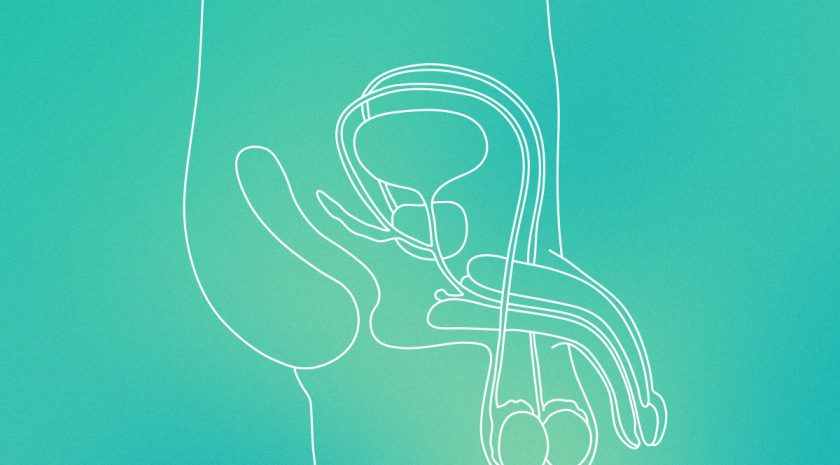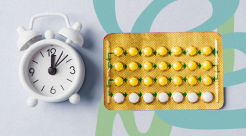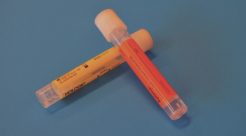
Penises are all unique, coming in different shapes and sizes. They can be wide, thin, long, short or with a bit of a curve. Unless a penis is causing pain or discomfort then it’s more than likely going to be one certified normal penis.
Does size matter?
There is no ‘normal’ penis size as all penises are different. How a penis looks is not necessarily related to how good sex will feel or how good sex will be for the person you’re having it with. Great sex comes from great communication, understanding boundaries and what is pleasurable for you and your sexual partner/s. It’s important to remember that no matter the size of your penis it’s possible to have fulfilling sexual relationships.
There are also no truly effective pills or medication that will make your penis bigger so it’s best to accept your body for what it is and work with what you’ve got.
What should my testicles look like and feel like?
Testicles are where the body makes and stores sperm and the hormone testosterone. There is generally not much variation in testicle size however it’s common for one testicle to be a little bigger or for one testicle to hang lower than the other.
Testicles are covered by a sack called the scrotum. The scrotum is usually wrinkly and covered with hair. Lots of people have tiny, painless bumps on their scrotum or penis shaft. This can be totally normal but any new changes should be checked by a health professional.
Testicles should still feel smooth without significant lumps or bumps and should feel firm but not hard. You may feel a soft tube at the back of each testicle, which is called the epididymis.
If you notice any changes like a new lump or bump, pain, itching, or any other changes in your scrotum or testicles you should see a GP or a sexual health clinic like SHINE SA. If you develop sudden pain and swelling in the testicles you should seek medical assistance immediately as this may be an emergency called a testicular torsion. This is most likely to occur under the age of 18 but can occur at any age. It can also be an infection which needs urgent treatment.
Why does my penis smell or feel sore?
A penis can smell or feel sore for a whole range of reasons.
STIs such as gonorrhea or chlamydia can sometimes cause a sore and smelly penis.
You should see a GP or a sexual health clinic if you have any symptoms. Most of the time there are no symptoms for STIs so if you’re sexually active it’s a good idea to get regular sexual health checks. You can also avoid STIs by using condoms.
Penises can also be sore due to skin irritations or infections. The best way to care for your penis is to wash with warm water only (not hot) and to gently dry. If you do have a foreskin, dry the penis completely before replacing the foreskin Do not use shower gels or soap to wash the penis. If you must use a product, only use a soap free wash such as sorbolene.
If you have a foreskin, a cheesy-looking substance called smegma may begin to gather. Smegma is a natural lubricant that keeps the penis moist. It’s found on the head of the penis and under the foreskin. If smegma builds up in the foreskin, it can start to smell and can cause redness and swelling of the head of your penis, called balanitis. Washing with warm water, avoiding soap and allowing to dry before replacing the foreskin should prevent this build up.
Balanitis can also be caused by an infection such as thrush or skin conditions like psoriasis.
These infections can be easily treated through medicines like antibiotics and antifungal creams.
If you are experiencing discomfort/have a swollen or red penis make an appointment with a GP or sexual health clinic.
What if my foreskin doesn’t retract?
By the age of 12-13 around 99% of uncircumcised people will have a foreskin that completely retracts. If your foreskin doesn’t retract it is important not to force it as this can cause scarring. Some people have a condition called phimosis where the foreskin has not completely separated naturally and this can cause pain or difficultly with erections or urinating. This can usually be treated with a cream applied to the foreskin, or occasionally, circumcision. See your GP or sexual health clinic if you are concerned.
Why can’t I keep an erection during sex?
It’s common for people with a penis to occasionally be unable to get an erection or keep it.
Erectile dysfunction may affect up to 1 in 4 people under 40 at some point in their lives. Factors that contribute to erectile dysfunction include drugs and alcohol, performance anxiety diabetes and high blood pressure, anxiety and depression, age and some medicines.
Difficulty in getting or keeping an erection does not immediately mean that something is wrong. This may occur from time to time for some of the reasons listed above. However, if this is a recurring issue the best thing you can do is book an appointment with your GP.
I’m ejaculating too early how can I treat it?
There are a number of treatments for premature ejaculation (PE) and they should be used with the support of a health professional. It’s important to figure out what the likely cause is and treatment may then follow.
If the PE is associated with trying to ejaculate before the loss of the erection then there may also be erectile dysfunction, which can be treated with specific medications. If the PE is associated with psychological problems such as performance anxiety or relationship issues, then counselling may be needed with a psychologist or sexologist.
Lifelong PE is a chemical imbalance which lowers the threshold for ejaculation and less stimulation is needed to orgasm. Treatment for this imbalance can include certain medications that are prescribed by a GP.
Behavioural techniques can be used to learn how to “slow down” during sex. These include the “stop-start” and “squeeze” techniques that help to stop sex when you feel close to ejaculation. These techniques should also be discussed with a health professional before using. Certain numbing creams and sprays can be used to reduce sensation or even using a condom.
The first step is to see your GP or a sexual health counsellor as they can help figure out what treatments are the best for you.
Your penis and testicles are probably normal, but there’s help out there if they’re not
Basically all penises are different and from time to time might not work the way you want them to. However, if you are worried about changes to your testicles or penis speak to SHINE SA or a GP. Remember that these questions are common, and you don’t need to feel embarrassed.
If you’re nervous about speaking to someone face-to-face you can call SHINE SA’s Sexual Healthline service where you can speak to a sexual health nurse for free.
Call 1300 883 793, the Sexual Healthline is open Monday – Friday, 9:00am – 12:30pm.









